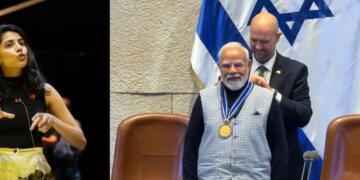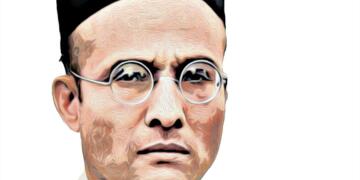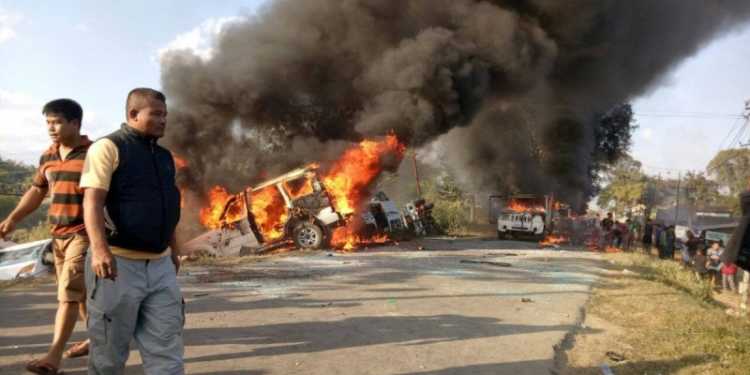For those who don’t know, Manipur is an integral part of the Indian Union. It is important to clarify this because the landlocked North Eastern State, inhabited by some 30 lakh Indians has been suffering for almost 2 months now. Unfortunately, for the Media bosses in Delhi, the lives of 30 Lakh Manipuris are less important than random speeches made by Modi, Rahul Gandhi and others. Even though Manipur is scheduled to go for polls around the same time as UP, Uttarakhand, Punjab and Goa, Manipur still doesn’t figure in the national news. For 2 months now, Nagas have blockaded Manipur’s highways, disrupting life and bringing the state to a complete halt. After days of inaction by the State government, violence broke out in parts of Manipur this week. Even this violence was not enough to catapult Manipur to national headlines. With no serious efforts to resolve the imbroglio in Manipur, the state continues to suffer.
Not unlike other North Eastern states, Manipur is a complex political entity. The state had been in existence even before India’s independence and joined the Indian Union in 1949. Demographically speaking, Manipur is composed of three distinct communities, the Meiteis, the Nagas and the Kukis. Sporadic conflict between these three communities, combined with secessionism and violence has blighted Manipur for several decades now. Geographically speaking, Manipur is a land of hills and valleys. The hills are inhabited, predominatly by the Nagas and Kukis, while the valleys are inhabited by Meiteis, who are the ‘indigenous’ people of Manipur. The appellations, ‘Naga’ and ‘Kuki’ date from colonial times and incorporate several tribes and sub tribes, which have, at different points of time been at war with each other. Roughly 60% of Manipur is Meitei, with the Nagas and Kukis making up the remaining 40%. Out of 9 districts in the state, 4 are valley districts, but are densely populated, while the remaining 5 are sparsely populated hill districts. In terms of religion, there are Meiteis who follow Hinduism and indigeous religions, Meiteis who follow Christianity and Meiteis who follow Islam. Nagas and Kukis are predominatly Christian. On the whole, nearly 50% of Manipuris follow Hinduism and indigenous religions, 40% follow Christianity and 8% follow Islam.
Problems in Manipur have emanated from two main factors. Secessionism from the Indian Union has been a historical factor. Secessionists have claimed that Manipur was illegally annexed to India. Insurgency in Manipur has continued even after Manipur became a state in 1972. The second major factor that has wrecked Manipur has been the rise of Naga nationalism. Home to a large population of Nagas, parts of Manipur have been looked at as a part of a greater-Nagaland nation. The local Meiteis, fiercely aware of their identity, have strongly protested against any deal which results in a territorial loss for Manipur. With a raging Naga insurgency, Kukis started arming themselves to fend off attacks by Nagas. Soon thereafter, other ethnic groups began forming militias resulting in extensive ethnic violence that marred Manipur in the 90s. The Naga-Meitei rivalry has persisted in the present times, though other militias continue to operate a low level insurgency.
Manipur is connected to rest of the country through National Highways 2 and 37. Both of these highways pass through Naga dominated areas and serve as readily available instruments of coercion against the Meiteis. The two highways have frequently been blocked in the past, resulting in unimaginable suffering in the landlocked state. In November 2016, Manipur Chief Minister, Okram Ibobi Singh decided to create 7 new districts. The carving out of some of these new districts was done in a way that would remove non-Naga populations from Naga dominated areas, thereby consolidating the Meitei vote. Manipur is due for elections in 2017 and Ibobi Singh and the Congress party face an uphill task, with BJP emerging as a strong player in Manipuri politics. That perhaps was also a factor behind the government’s decision. Be that as it may, the Naga hills erupted in violence at the government’s decision. The United Naga Council (an umbrella group of Nagas in Manipur), supported by the Naga insurgents immediately launched a blockade of NH2 and NH 37. The UNC launched protests against the government’s decision to bifurcate ancestral Naga land. The blockading of the highways led to severe shortage of goods and services in the Meitei occupied valley districts. This coupled with terror attacks by Naga organizations led to death and destruction in Meitei homeland. Bandhs against Naga groups were called by civil society activists, which soon gave way to violence. Vehicles coming down from the hills were targetted and set afire. Amidst widespread arson, curfew was imposed and gradually withdrawn and valley began limping back to normalcy.
In midst of the violence and backlash, the national highways continue to be blockaded by militant Nagas.
The Central government belatedly sent troops to bring the situation under control. In the meanwhile, CM Okram Ibobi Singh demanded that the ceasefire with NSCN be rescinded at least in Manipur, no doubt, with an eye to the elections. But the fact of the matter is that both the state and the central government have not shown as much seriousness and alacrity as was required. The fact that a bunch of renegades can bring a state of the Indian Union to a standstill, and that too repeatedely, reflects poorly on both governments. The need of the hour is to impose the rule of law and force the parties to the negotiating table to bring peace to the state.
For starters, the state must be brought under Central rule. Resolution of the Manipur tussle, will demonstrate the seriousness of Modi government’s initiatives in the North East.
References:
http://www.thehindu.com/opinion/editorial/Ending-the-Manipurr-blockade/article16919531.ece




























